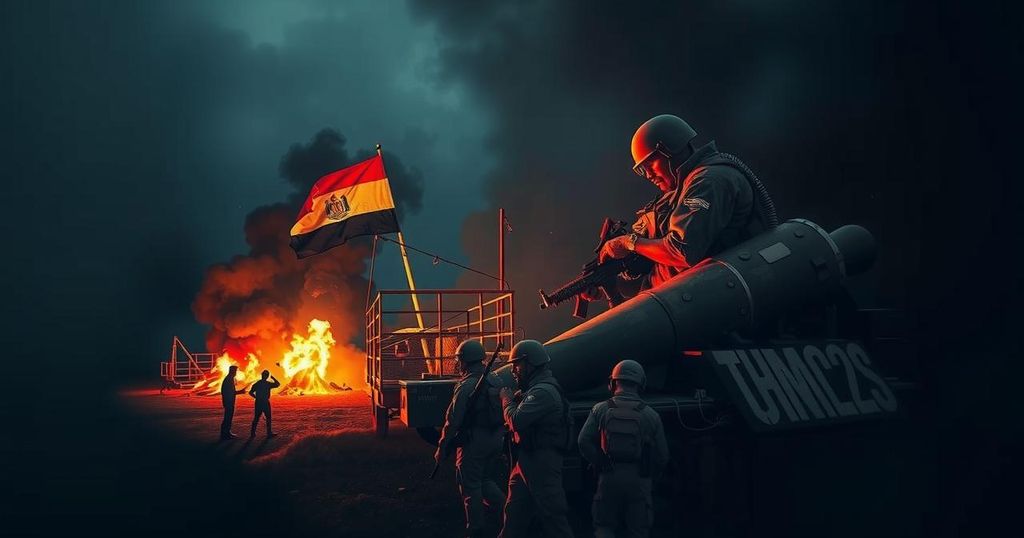Israeli forces persist in their bombardment of Gaza while Hamas and Fatah negotiate potential solutions in Egypt, focusing on humanitarian needs and the reopening of the Rafah crossing. Reports of violations of a ceasefire agreement raise concerns in Lebanon, and international responses highlight the calls for accountability amid ongoing violence.
Israeli military operations in Gaza persist as Hamas and Fatah engage in diplomatic discussions in Egypt aimed at addressing the ongoing conflict. A senior health official has accused Israel of utilizing munitions that disintegrate victims, intensifying humanitarian concerns. Ahead of a visit to Lebanon, French Defense Minister Sebastian Lecornu is anticipated to converse with key officials regarding the enforcement of the ceasefire agreement between Israel and Hezbollah.
Recent reports indicate multiple Israeli violations of the ceasefire, with activists expressing alarm regarding attacks in southern Lebanon and the escalation in Gaza. Human Rights Watch has urged the International Criminal Court (ICC) to uphold justice, pointing to previous arrest warrants for high-profile leaders, emphasizing that no one is above the law.
Within Gaza, Israeli strikes have been reported extensively from Jabalia to Khan Younis, raising fears of forthcoming ground incursions. Concurrently, Fatah and Hamas are discussing essential proposals in Cairo, including the reopening of the Rafah crossing, which has been closed due to the conflict.
A poignant moment occurred at a UN hearing where Dr. Tanya Haj-Hassan, a pediatric surgeon, shared heartbreaking accounts from her colleagues in Gaza, illustrating the tragic medical conditions under siege. In a separate context, US Central Command reported successfully countering Houthi missile and drone assaults against US-flagged vessels, which the Houthis claim were conducted in support of the Palestinian struggle, exemplifying the regional implications of the ongoing conflict.
The Israeli-Palestinian conflict, particularly within Gaza, has deep historical roots characterized by ongoing violence and humanitarian crises. The current situation is exacerbated by military actions from Israel and accusations regarding their tactics. The role of international entities, such as the ICC and involvement from nations like France and the United States, reflect broader geopolitical dynamics linked to this conflict. Diplomatic efforts are evident in negotiations between rival Palestinian factions and international observers striving to mediate and mitigate the violence. Current military actions, particularly in Gaza, pose significant challenges to peace and stability in the region.
In summary, the situation in Gaza remains precarious with continued Israeli military actions sparking widespread condemnation and calls for justice. The diplomatic conversations between Hamas and Fatah illustrate efforts towards Palestinian unity and resolution, particularly concerning the humanitarian situation in Gaza. International involvement, underscored by the responses of humanitarian organizations and foreign officials, plays a crucial role in shaping the response to the conflict, revealing the pressing need for sustainable peace efforts in the region.
Original Source: www.aljazeera.com






